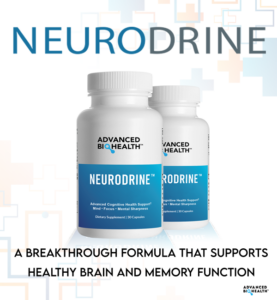New Alzheimer’s Treatments

As cells carrying information in the brain die, Alzheimer’s progresses. Current treatments don’t stop this from happening. Experts are hopeful about developing effective treatments to stop or delay the progression of Alzheimer’s disease. A better understanding of how this disease affects the brain has led to new potential treatments that prevent it from spreading in the brain.
Future treatments may be a combination of medications, similar to how cancer treatments currently include more than one medication. New treatments for Alzheimer’s disease target microscopic clumps of the protein beta-amyloid (plaques). These plaques are characteristic signs of Alzheimer’s disease.
Hormones in Alzheimer’s Treatment
In one study, estrogen-based hormone therapy appeared to protect women, especially those at higher risk of Alzheimer’s disease. In relation with estrogen and cognitive function, more research is needed to come up with a conclusion. However, some studies show that estrogen may not offer any protective effects against cognitive decline.
Monoclonal antibodies in Alzheimer’s Treatment
Monoclonal antibodies mimic the immune system and could possibly remove beta-amyloid or slow down its formation. This is all from the natural response of your body to foreign invaders or vaccines.
Aducanumab is the first drug approved in the United States that treats symptoms by targeting and removing amyloid plaques in the brain. Another monoclonal antibody, lecanemab, shows promise in amyloid removal and is currently in clinical trials. Donanemab is another monoclonal antibody that has been effective in phase 2 trials and will be moving on to phase 3.
Reducing inflammation in the brain
Researchers are looking for ways to eradicate inflammation that causes Alzheimer’s. They have their eye on Leukine, a drug that may work by stimulating the immune system.
Insulin resistance research
Scientists are studying the effects of insulin in the brain, specifically how it could be connected with Alzheimer’s. A trial testing an insulin nasal spray determined that the drug was not effective in slowing the progression of Alzheimer’s.
The heart and Alzheimer’s
Growing evidence suggests that the risk of developing dementia appears to increase as a result of many conditions that damage the heart or arteries. Diseases such as high blood pressure, heart disease, and diabetes can put people at a higher risk of dementia.
More studies are looking at how heart disease and Alzheimer’s works in a molecular way to find new drug targets. These drugs work on new targets. Making lifestyle choices with known heart benefits such as exercising most days and eating a heart-healthy diet that may help prevent Alzheimer’s disease or delay its onset.




